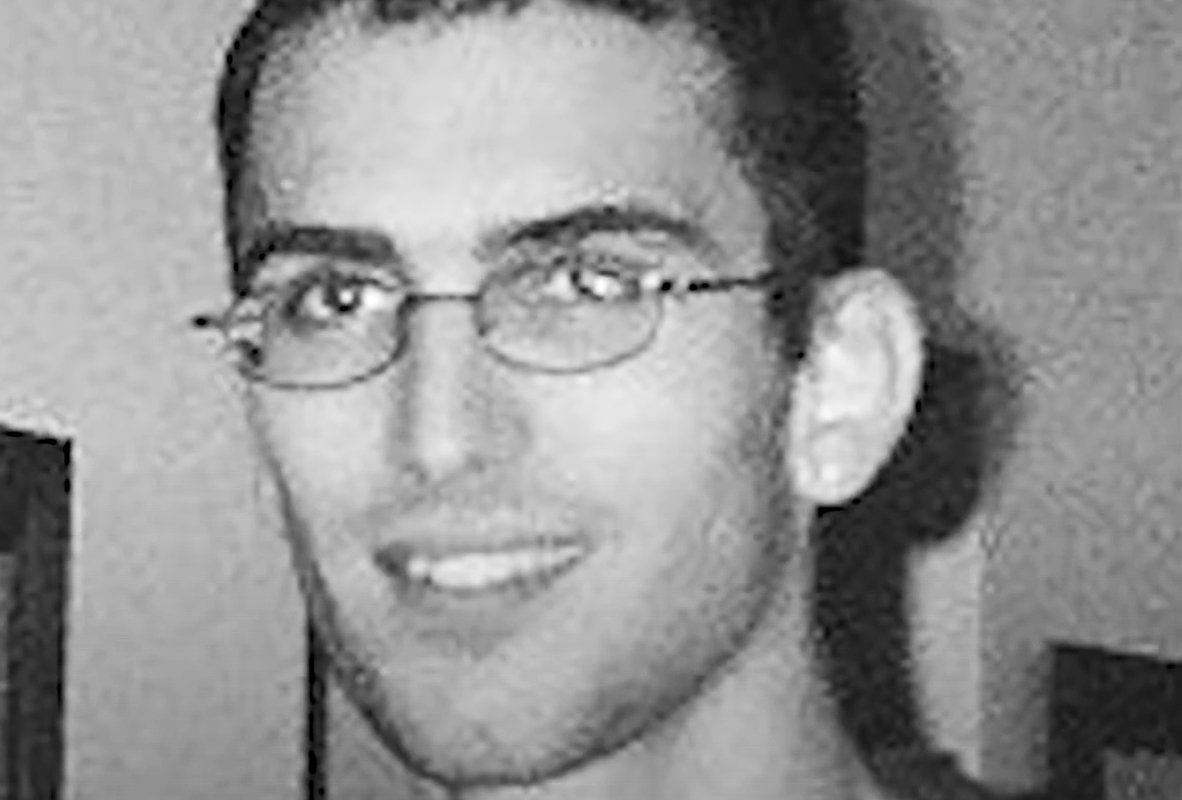Father
Professional
- Messages
- 2,602
- Reaction score
- 837
- Points
- 113
How the special services drove the first hacker who broke into the Pentagon to suicide
"Feed publishes the story of hacker Jonathan James, who hacked the Pentagon at the age of 15
Hackers who try to break into the Pentagon and break into the systems of US intelligence agencies have long been commonplace in movies and TV shows. Usually these are adult men who often wear dark glasses in a room lit by neon lamps. Politically motivated hackers do often take an interest in the Pentagon. And although the media usually accuse the Russians of such actions, in fact, a 15-year-old American was the first to find gaps in the Pentagon's systems. "Feed recalled the story of Jonathan James — a computer genius who hacked into the Pentagon, went to prison, and was harassed by the US authorities after his release.
The 24-year-old man was sitting at his desk, <a>writing</a> the fourth page of his letter on torn-out sheets of paper in a ruler in an uneven handwriting, in terrible excitement. It was a hot day in his native Pinecrest, a respectable suburb of <a>Miami</a>, Florida, and it didn't get any better in the evening — the thermometer was reading +26 Celsius, so he had to open the window. The email was almost ready: all you had to do was specify the passwords for your MySpace and <a>PayPal</a> accounts, and, of course, for your router.
He managed to compose this note almost without any blemishes, except that in one place he crossed out the beginning of the sentence to start it on the next page. He emphasized the line "My last will", but the content of this page was never leaked to the press. At this table, he had once achieved everything, and a couple of weeks ago, when his house was raided again, he had lost everything. The Beatles 'Fool on the Hill is in the background — either really playing or just playing in his head:" Day after day, a lonely weirdo on the hill, smiling so strangely, stands motionless."
"NASA's program was pretty shitty"
Nine years before that night, in June 1999, 15-year-old Jonathan James was making his second major break-in. At that time, he spent almost all his free time online, trying to find vulnerable servers from his Pentium-266, which could be connected to bypass security systems. A search led him to a vulnerable computer in Huntsville, Alabama. By setting up a remote connection, a teenage hacker infected the device with malware, which allowed James to increase his own level of rights in the system.
Jonathan James went down in history as a hacker who hacked NASA and the US Department of Defense in just a few months.
Frame: 50M Videos / YouTube
This gave him access to 13 more computers. All of them were part of a single network that belonged to the Marshall Space Center, the main research institute of NASA. James opened file after file and couldn't believe his eyes. Before him were mock-ups and test results of secret rocket engines, descriptions of communication systems, and even the source code of the program that controlled the critical life-support elements of the International Space Station, which had then been launched just over six months. It was with the help of the programs that Jace had access to that a habitable environment was maintained on the ISS, including temperature and humidity control.
Six months later, during the trial, it will become known that the US government spent $ 1.7 million to write this code. James himself was rather skeptical about the work of NASA developers.
"Have I changed anything in the source code? No," James said in a later interview. — It was an environmental control program, why would I need it? To play with the space air conditioner? At the same time, the code itself was quite crappy and definitely did not cost $ 1.7 million."

NASA was able to take a full part in the launch of the ISS, but created software, which was mocked by a teenager
James claimed that the only reason he downloaded the NASA program code was out of curiosity. In addition, the project was written in the same programming language that the teenager was interested in.
What could be more fun than reading government-written code?
Jonathan Jamesfirst hacker to break into the Pentagon
When the hack was discovered, NASA officials in charge were immediately alerted. The Marshall Center's systems were shut down for three weeks to analyze the causes and chronology of the hack. This caused NASA direct damage in the amount of 41 thousand dollars. All information about the hacker attack was immediately passed to the Federal Bureau of Investigation (FBI), so that special agents could find an unknown and, apparently, powerful cybercriminal who was calmly attending classes at that time.
The first Pentagon hack
A couple of months before breaking into NASA systems, James, who used the online pseudonym C0mrade, first stepped far beyond the school computer literacy course. He practiced hacking before, but then his first big success happened — he managed to get into the systems of one of the largest telecommunications companies in the United States, AT&T BellSouth. Moreover, the corporation itself learned about the abuse of its own security systems only in early 2000 from James ' testimony in court.Having experienced the taste of the first victories, C0mrade did not think to calm down. In September 1999, he discovered that someone had installed a Trojan on a server in Dulles (Virginia, now part of the metropolitan area), which allowed almost anyone to connect to the server. At that time, the teenage hacker did not yet know that the system was managed by the Defense Threat Reduction Agency (DTRA), part of the US Department of Defense. Its main task is to counter external threats to the country's national security, but the military was unable to cope with internal threats.
Without thinking twice, James installed a special program on the server that intercepted and analyzed traffic passing through it. This hunt was particularly successful: the teenager found out the credentials of employees of the Ministry of Defense and gained access to 10 more computers. Already from there, he downloaded more than 3,300 emails and a bunch of classified information. This hack is considered the first hack of the Pentagon, at least among those recognized in Washington.
"It turned out that you can easily control the computers used by the military and employees of government agencies or large corporations. And if you know what you're doing, you can surf the Internet without restrictions, wherever your heart desires. Such movements in the network give a special power," James later told about hacking.

James committed his most terrible crimes for American national security using a computer with a seemingly ridiculous Pentium-266 processor today.
In his travels through the forbidden areas of the Internet, the hacker, like many of his followers from among amateur cyber hackers, did not take into account only one thing — his own anonymity. Knowing how to get into the most secret corners of state networks, he didn't worry about the traces he left behind. They were enough to get on the trail of James by January 2000.
"I raised an idiot"
The hacker's father, Robert James, admitted a year after his son's death that he was even a little proud of his achievements in cyber hacking. It was he, being a programmer, who opened the digital world to the child. By the age of six, James Jr. was already an avid computer enthusiast and spent hours playing games on the family PC. Then, unexpectedly, he began to learn first how to bypass parental control programs on computers, and then programming languages. When James was 13, he removed the Windows operating system, replacing it with the more popular Linux among specialists and developers.
James was bored with the cutting-edge technology for those years, which he knew thoroughly by the age of 13-14 years.
The child's obsession with high technology was a constant source of quarrels between his parents. Jonathan's mother didn't want her son sitting in his pants at the computer until late at night. His father, on the contrary, indulged his hobbies, seeing in the boy an extension of himself. When one day the mother won, and the future hacker's computer was taken away, he ran away from home, and then in a telephone conversation put forward an ultimatum: "I will return when the equipment returns." The parents eventually found James Jr. in a store on their own street, but his condition still had to be fulfilled.
"Sometimes I thought he was pretty smart," Robert James said, " and sometimes I thought I'd raised an idiot. I have to admit, I never found out which answer is correct."
1,7 millions of dollars.
Spent NASA building a program that Jonathan james called "pretty shitty"
All these years, the boy's parents were worried that the days and weeks spent near the computer would respond to poor grades at school. And each time they were surprised by Jonathan's high academic performance. The truth came out when he was tried: it turned out that a novice hacker had long ago hacked into the network of educational institutions in the district and systematically corrected his own grades there.
I just explored the world around me and played with it. Hacking was simple fun, but it was also a challenge. What can I do? How far can I go?
Jonathan Jamesfirst hacker to break into the Pentagon.
"I told them I wouldn't do it again"
Jonathan James ' life changed dramatically on January 26, 2000, when his mother opened the door and saw armed men from the FBI and the Department of Defense. Many years later, the hacker told reporters with a smile that that day "became a very popular dude in college.""My mother pulled me out of bed and told me that the FBI was waiting for me outside the door. I went out and saw all these people with guns and vests that read "Federal Agents, ""NASA," and " Department of Defense." I was served with a search warrant, but most of it was covered up with marker, as they said, " for reasons of national security." I was taken to an empty room and interrogated for several hours. And I confessed everything that I had done, saying that I was very sorry, and I wouldn't do it again," James recalled the events of that day.

The FBI removed all the equipment from James home.
During the search of the house, four personal computers, a laptop and one pocket computer were seized. James agreed to cooperate with the investigation, and his defense insisted that the hacker did not take any actions that would harm NASA, the Department of Defense or corporations, but only studied the documents obtained as a result of hacking. The teenager also managed to prove that in at least several cases he wrote to the information security departments of companies affected by his actions, not only pointing out the existence of problems, but also suggesting ways to fix them. However, he never received a reply.
The fact that James committed his crimes at the age of 15 also played into his hands. If he had been a year older, he would have gone to prison for a minimum of 10 years, paying a huge fine. In the end, James got off easy enough. The court sentenced the hacker to a six-month house arrest with a ban on using the computer for entertainment purposes, followed by a two-year probation period. In addition, the hacker had to make a written apology to NASA and the US Department of Defense.
I never believed that they would actually come to my house. It was a complete shock to me
Jonathan Jamesfirst hacker to break into the Pentagon
A few weeks later, the police detained Jonathan on the street-this meant that he violated the conditions of house arrest. Moreover, drugs were found in his blood. At this point, his suspended sentence turned into a real one. This was the first time in US history that a teenager was jailed on charges of committing a computer crime.

After the attack on the Pentagon, James had no chance to remain anonymous.
"Six months… You know, there are more serious sentences, but this is still a very decent term, " James worried in an interview after he was commuted to a real one. — During this half-year, I will be surrounded by people who have committed real crimes, caused pain and suffering to other people. And I'll have to surround myself with them… I don't want to sound arrogant, but these are people with very low moral convictions. So I'm a little worried."
I've learned my lesson. I shouldn't commit such crimes. What will I do after I get out of prison? I don't know, maybe I'll start an information security company.
Jonathan Jamesfirst hacker to break into the Pentagon.
By the time James was released from prison, his mother was seriously ill. In 2002, when Hacker was 18, she died of cancer. According to the memoirs of James Sr., the departure of his mother finally plunged the teenager into depression, in which he remained for the rest of his life.
James dropped out of school, refused to go to work, and spent time in seclusion in the same Pinecrest home from which he committed crimes. He took his living expenses from a small trust fund left by his mother.

After his mother's death, James only rarely appeared in public
Frame: 50M Videos / YouTube
"He's one of those people who would rather live without money than work," Robert James said with a grin. I was blown away by how good he was at it."
Recent suspicions
Despite the fact that Jonathan James completely changed his lifestyle after prison, the special services did not leave him alone. In January 2007, and again in May 2008, the Secret Service of the US Department of Homeland Security again appeared on the doorstep of the house in Pinecrest. They were investigating a high-profile case involving a series of massive hacker attacks on major trade and financial organizations in the country. At the head of the group that was behind the attacks was Albert Gonzalez, who from 2005 to 2007, together with his accomplices, stole and resold the data of 170 million bank cards of Americans. Among the affected companies were little-known in Russia, but well-known in the United States BJ's Wholesale Club, DSW, Office Max, Boston Market, Barnes & Noble, Sports Authority and T. J. Maxx.Official charges were brought against Gonzalez in early May 2008, but the hunt for his accomplices by that time had been going on for a year and a half. Apparently, Jonathan James aroused the suspicions of the special services because of an accident. One of Gonzalez's accomplices used the nickname JJ, which coincided with the initials of the teenage hacker.
For the first time, the secret service simply talked to James. When they returned a year and a half later, they conducted a full-fledged search. Then they found nothing unusual in the house, except for an officially registered gun and an old suicide note: the hacker wanted to commit suicide, but changed his mind. Communicating with the authorities has driven 24-year-old James to despair and awakened long-dormant paranoid thoughts. After his release from prison, he seriously believed that the security services were monitoring him and his movements. In many ways, it was precisely because of this that he led a reclusive lifestyle, even distancing himself from his own father, however, maintaining good relations with him.
A few years after the searches, Gonzalez was sentenced to a long prison sentence (he will be released in 2025). Even Russians and Ukrainians were found among his accomplices, but not James.
Hacker tired of dreaming
Shortly before the second search, Jonathan wrote his father a letter suggesting that the four of them meet for dinner, along with his other son and his girlfriend. Jonathan Sr. was delighted and even joked about whether his son was going to announce his engagement to some girl. After the search, the plans changed. My father called after that and carefully asked if the special services had any chances of finding any evidence in the house. James Jr. said no.
Jonathan has lived all his life in Pinecrest, which years later became an elite suburb of Miami
He was no longer particularly interested in the course of the investigation, he just did not want to become a defendant in it. Personal victory or personal defeat became a fixed idea: James wasn't going to go to jail for a crime he didn't commit.
The dimmed lamp illuminated the handwritten pages and a portrait of NASA astronaut Michael Coates, who had flown the space shuttle Discovery three times in the 1980s and early 1990s. In the upper — right corner of the image, there is a sprawling Coates caption: "To Jonathan, don't be afraid to dream!"
By that time, James only wanted to be free, believing that he had become a "juicy target" for federal agents. In his head, he compared himself to Kevin Mitnick, who was then considered the most wanted hacker in history, but believed that his arrest would be ten times more pleasant for the FBI and the public's desire for sensationalism and exposure.
James left the note on the table and went to the bathroom, where the gun had been lying for half a day.
A genius who surprised the government
The eerie epilogue of these events was a story that James Sr. was told by one of the family friends. A week and a half after the young man's suicide, he saw two people swarming around Jonathan's car. One of them at some point and completely waist-deep, lying on his back, climbed under the bottom, only his legs sticking out."It was the Secret Service," Robert James is sure.
In a short obituary published in the Miami Herald, they wrote that Jonathan will be remembered by friends and family as an exceptionally intelligent young man who never did anything by the rules. He will be called a computer genius who constantly " surprised his friends, family and even the government with his achievements."
I haven't seen Jonathan since his mother died. I remember him with great love. He was a quiet child, constantly observing the world around him. He was loved and respected by his peers: I always thought that the reason for this was something inherited from my mother. Kind, interested in everything in the world, not feeling any need to adapt or be like others. I'm sorry he's gone
Lucy SpielerJames high school teacher.
Comments under this obituary have been appearing for 25 years now. Many of those who leave them knew Jonathan James personally; members of the Anonymous hacker movement paid their respects in a separate message. But basically, almost everyone remembers the stories associated with him, which show that up to a certain point he was a quiet, but still quite cheerful young man, inclined to have fun with friends and a little love.

